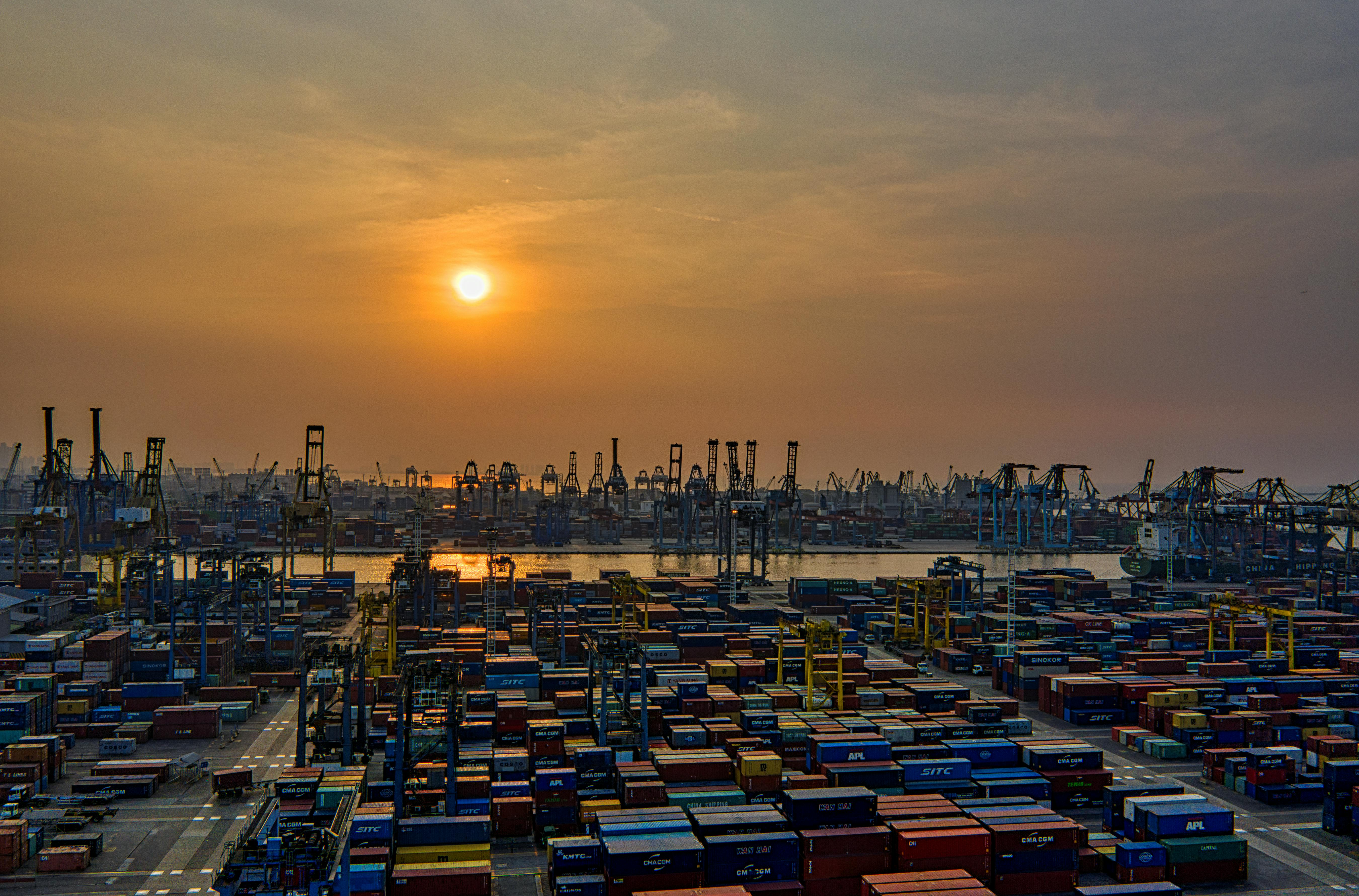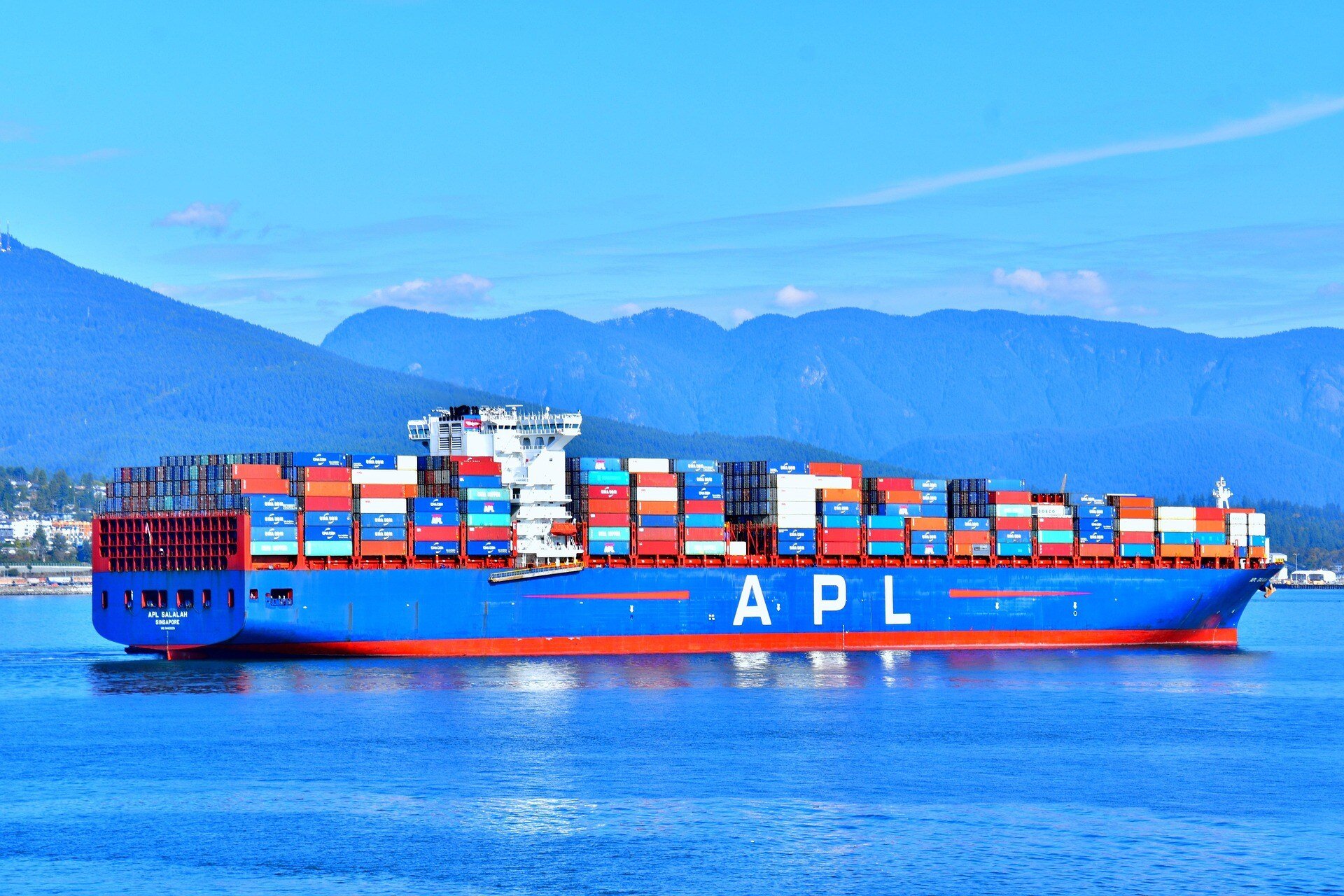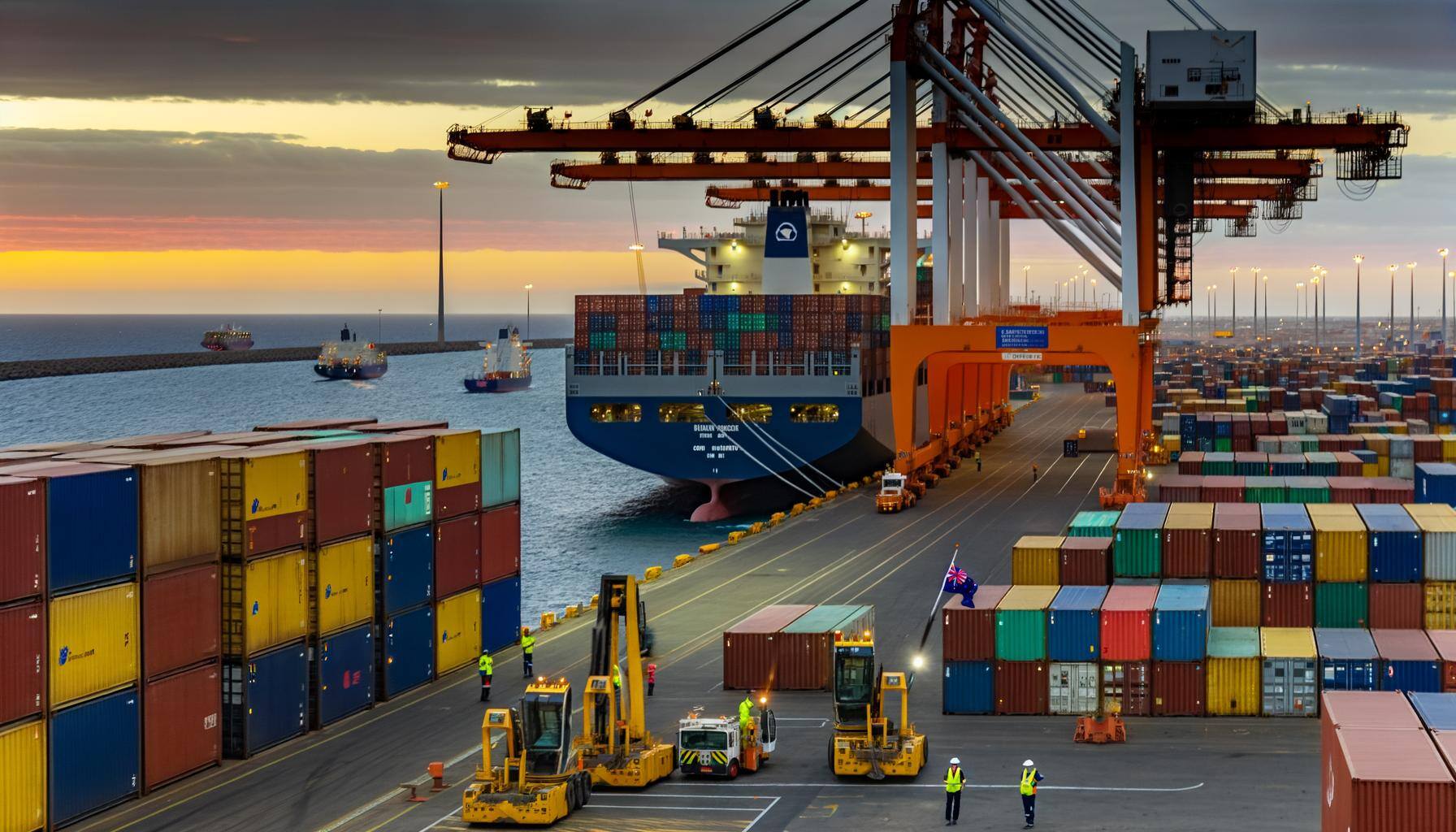Shipping a car to France can be an exciting yet complex endeavor, whether you're relocating, purchasing a classic European vehicle, or expanding your automotive business. This comprehensive guide will walk you through every aspect of the process, from understanding French import regulations to selecting the right shipping method and navigating customs procedures.
With nearly two decades of experience in international vehicle logistics, West Coast Shipping is here to ensure your car arrives safely and efficiently in the land of fine wines and exquisite cuisine.
Understanding the French Car Import Landscape
Before diving into the specifics of shipping your vehicle, it's crucial to grasp the overall context of importing cars into France.
Why Ship a Car to France?
There are several reasons why you might consider shipping a car to France:
-
Relocation: If you're moving to France for work or retirement, bringing your familiar vehicle can provide comfort and convenience.
-
Classic Car Acquisition: France has a rich automotive history, making it a prime location for classic car enthusiasts.
-
Business Expansion: Automotive dealers may ship vehicles to tap into the French market.
-
Temporary Use: Students or long-term visitors might find it more economical to ship their car for extended stays.
French Import Regulations Overview
France, as part of the European Union, has specific regulations governing vehicle imports. Here's a high-level overview:
-
Age Restrictions: Vehicles over 30 years old are classified as classic cars and may be subject to different import procedures.
-
Emissions Standards: All imported vehicles must meet current EU emissions standards.
-
Safety Requirements: Vehicles must comply with French safety regulations, which may require modifications to lighting, mirrors, or other components.
-
Import Duties and Taxes: Non-EU residents may be subject to import duties and Value Added Tax (VAT).
Cost of Importing a Car to France

One of the most common questions we receive is "How much does it cost to import a car to France?" The answer depends on several factors, but here's a breakdown of the typical costs:
Base Shipping Costs
-
Port-to-Port Container Shipping: $1,050–$1,800 per car
-
Destination Fees: Starting at $600, depending on the receiving agent in France
Import Duties and Taxes
-
Import Duty: 10% of the vehicle's value
-
VAT: 19% applied to the total value (vehicle cost + shipping + duty)
Additional Costs to Consider
-
Vehicle Collection: Fees vary by pickup location in the USA
-
Cargo Protection: Optional insurance coverage available for added peace of mind
For classic cars over 30 years old, there is no import duty, and the VAT is reduced to only 5.5%.
To get an accurate estimate for your specific situation, use our car import calculator for instant rates.
Understanding Costs: Shipping Cars to France
The cost of shipping a car to France can vary significantly based on several factors. Here's a breakdown of what influences pricing:
Primary Cost Factors
-
Shipping Method: Container shipping typically costs more than RoRo but offers greater protection.
-
Vehicle Size and Weight: Larger or heavier vehicles incur higher shipping costs.
-
Origin Location: Shipping from the East Coast is generally less expensive than from the West Coast due to shorter transit times.
-
Destination Port: Le Havre is often the most cost-effective port for vehicle imports to France.
-
Season: Prices may fluctuate based on demand and fuel costs.
Additional Costs to Consider
-
Insurance: While not mandatory, we strongly recommend comprehensive shipping insurance.
-
Customs Duties and Taxes: These vary based on the vehicle's value and your residency status.
-
Inland Transportation: If you need your vehicle delivered beyond the port of entry.
-
Storage Fees: If you can't collect your vehicle immediately upon arrival.
Step-by-Step Process of Shipping a Car to France
Shipping your car to France involves several key steps. Let's break down the process to make it more manageable.
1. Prepare Your Vehicle
Before shipping, your car needs to be properly prepared:
-
Clean the vehicle thoroughly, inside and out.
-
Remove all personal items (these cannot be shipped with the vehicle).
-
Ensure the gas tank is no more than 1/4 full.
-
Document any existing damage with photos and written descriptions.
-
Perform any necessary maintenance to ensure the vehicle is in good working order.
For a complete checklist, check out our article on preparing your car for international shipping.
2. Choose a Shipping Method
You have two primary options for shipping your car to France:
Container Shipping
Container shipping offers the highest level of protection for your vehicle. Your car is loaded into a sealed container, shielding it from the elements and potential damage during transit.
Pros of Container Shipping:
-
Maximum protection from weather and handling
-
Ability to ship non-running vehicles
-
Option to consolidate multiple vehicles or include personal items (in separate containers)
Cons of Container Shipping:
-
Generally more expensive than RoRo
-
May have longer transit times due to container loading and unloading
Roll-on/Roll-off (RoRo) Shipping
RoRo shipping involves driving your vehicle directly onto a specialized vessel, similar to a large parking garage.
Pros of RoRo Shipping:
-
Often more cost-effective for single vehicle shipments
-
Faster loading and unloading process
-
More frequent sailing schedules
Cons of RoRo Shipping:
-
Vehicles are exposed to the elements during transit
-
Only suitable for operational vehicles
-
Limited options for shipping personal items
For an in-depth comparison of these methods, visit our article on comparing shipping options for France: Container vs. RoRo.
3. Book Your Shipment
Once you've decided on a shipping method, it's time to book your shipment. When working with West Coast Shipping, this process is straightforward:
-
Request a quote through our online form or by calling our team.
-
Provide details about your vehicle (make, model, year, condition).
-
Choose your preferred shipping method and any additional services.
-
Receive a detailed quote and shipping timeline.
-
Confirm your booking and make the necessary payments.
4. Prepare Documentation
Proper documentation is crucial for a smooth shipping process. You'll need to gather:
-
Original vehicle title
-
Bill of sale
-
Passport or government-issued ID
-
Power of attorney (if someone else is handling the shipment on your behalf)
-
Vehicle registration
-
Customs forms (provided by your shipping company)
5. Drop Off or Arrange Pickup
Depending on your location and chosen service, you'll either:
-
Drop off your vehicle at one of our secure facilities in California, Florida, or New Jersey.
-
Arrange for pickup from your location (additional fees may apply).
6. Track Your Shipment
Once your vehicle is in transit, you can track its progress. West Coast Shipping provides regular updates and a dedicated point of contact for any questions or concerns.
7. Clear Customs in France
Upon arrival in France, your vehicle will need to clear customs. This process involves:
-
Presenting all required documentation
-
Paying any applicable duties and taxes
-
Passing a vehicle inspection (if required)
West Coast Shipping can assist with this process, ensuring all paperwork is in order and advising on any necessary steps.
8. Receive Your Vehicle
After clearing customs, you can collect your vehicle or arrange for final delivery to your specified location in France.
Can I Bring a Foreign Car to France?
Yes, you can bring a foreign car to France, but there are some important considerations:
-
New Cars: You can import new cars, but they must comply with EU emissions and safety standards.
-
British Cars: Post-Brexit, importing a British car follows the same rules as importing from non-EU countries.
-
EU Cars: Importing from within the EU is simpler, with no customs duties but potential VAT implications.
-
Non-EU Cars: These face more stringent import procedures, including customs duties and potential modifications to meet EU standards.
Temporary Import vs. Permanent Import
If you're temporarily moving to France, you have options:
-
Temporary Import: For stays up to 6 months, you can use your car without registering it in France. You'll need a temporary transit plate ("TT plate") and temporary insurance.
-
Permanent Import: For stays longer than 6 months, you'll need to go through the full import and registration process.
Can I Drive My UK Car in France?
Yes, you can drive your UK car in France, but there are some requirements:
-
Ensure your UK insurance covers driving in France
-
Display a UK sticker on the rear of your vehicle
-
Adjust your headlights for driving on the right (beam converters are acceptable for short trips)
-
Carry all necessary documentation, including your passport, driving license, and vehicle registration documents
For stays longer than 6 months, you'll need to register your car in France.
Shipping Classic and Specialized Cars to France
France is a popular destination for classic car enthusiasts. Here's what you need to know about shipping classic and specialized cars:
Classic Cars
-
Vehicles over 30 years old are exempt from import duties
-
Reduced VAT rate of 5.5% applies
-
Must still meet basic safety standards, but emissions requirements are often relaxed
Non-Running Cars
You can ship non-running cars to France, but:
-
Container shipping is required
-
Additional equipment may be needed for loading and unloading
-
Customs may require an explanation for why the car isn't operational
Race Cars
Importing a race car to France requires:
-
Proof that the vehicle is intended for racing purposes only
-
Compliance with specific safety regulations for race vehicles
-
Potential restrictions on road use
Specialized or Modified Cars
For heavily modified or specialized vehicles:
-
Additional documentation may be required to prove compliance with safety standards
-
An individual vehicle approval process might be necessary
Vehicle Registration in France
After importing your car, you'll need to register it in France. Here's a brief overview of the process:
-
Obtain a Certificate of Conformity (CoC) from the car manufacturer
-
Pass a French technical inspection (Contrôle Technique)
-
Gather necessary documents (proof of identity and address, proof of ownership, CoC, technical inspection report, customs clearance certificate)
-
Complete form cerfa n°13750
-
Submit all documents to your local prefecture or online via the ANTS website
-
Pay the registration fee and taxes
-
Receive your new French registration card (carte grise)
Insurance Requirements
Your existing car insurance will likely not be valid in France for extended periods. You'll need to:
-
Obtain French car insurance before registering your vehicle
-
Ensure your policy meets the minimum legal requirements in France
-
Consider comprehensive coverage for imported vehicles
Why Choose West Coast Shipping To Ship Your Car To France

With nearly two decades of experience in international vehicle logistics, West Coast Shipping offers unparalleled expertise in shipping cars to France:
-
Comprehensive Services: From pickup to delivery, we handle every aspect of the shipping process.
-
Customs Expertise: Our team stays up-to-date on French and EU import regulations.
-
Flexible Shipping Options: Choose between container and RoRo shipping to suit your needs and budget.
-
Transparent Pricing: Get clear, detailed quotes with no hidden fees.
-
Dedicated Support: Enjoy personalized assistance throughout your shipping journey.
Your Journey to France Starts Here
Shipping a car to France doesn't have to be a daunting task. With the right partner and proper preparation, you can ensure your vehicle arrives safely and efficiently at its French destination. Whether you're moving for work, expanding your business, or fulfilling a lifelong dream of cruising the French Riviera in your own car, West Coast Shipping is here to make your automotive journey a reality.
Ready to start your car's journey to France? Request a personalized quote today and let us handle the complexities of international vehicle shipping while you focus on your exciting new chapter in France.
You May Also Like
These Related Stories

Cost Breakdown: Everything About Car Shipping Prices to France

International Car Shipping Costs: Country-by-Country Breakdown

-093789-edited.png?width=220&height=79&name=wcs_final_logo_(1)-093789-edited.png)
